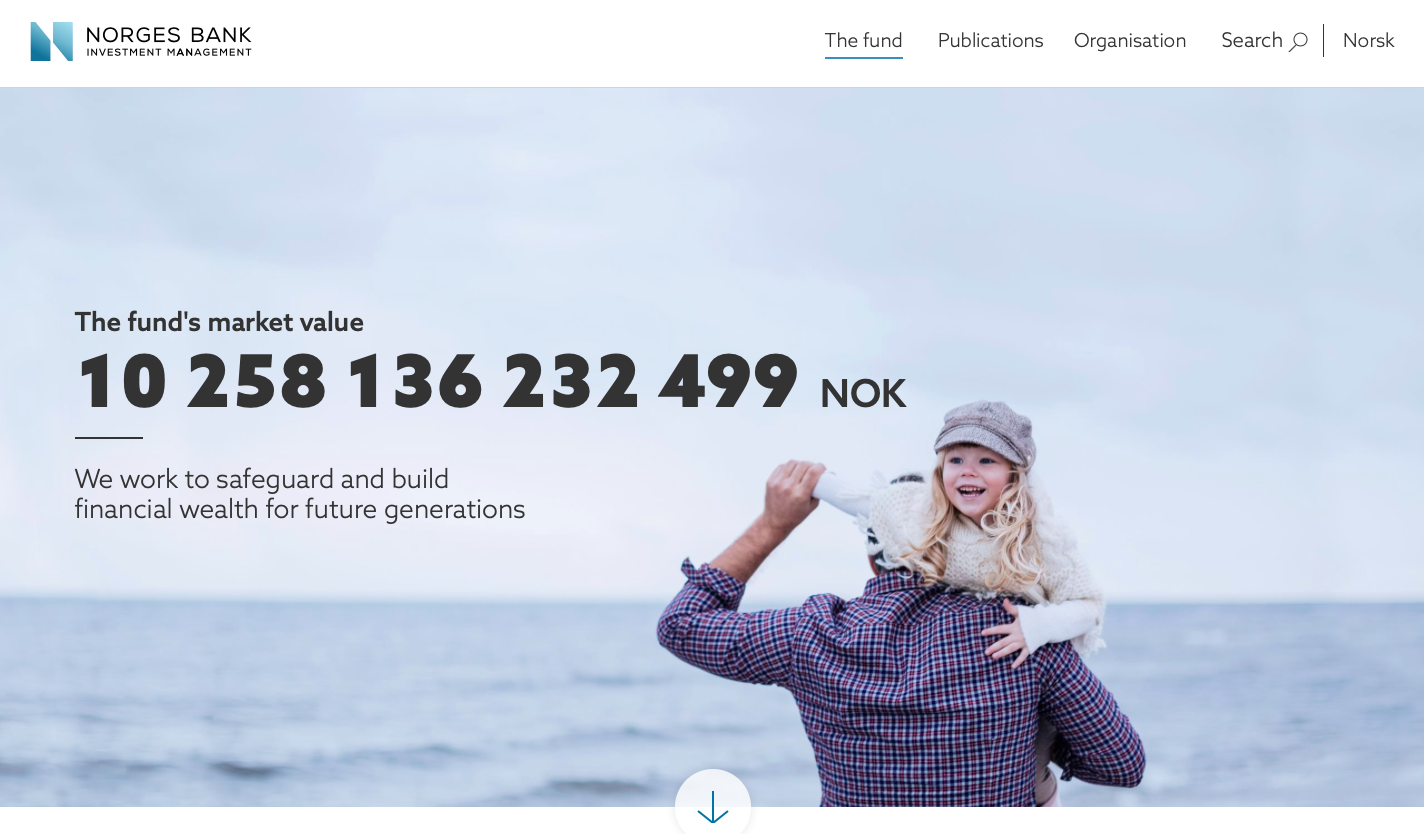United States SEC Study: Impact of Fund Benchmarks on Investor Decision-Making, $25 Trillion Industry
22nd September 2022 | Hong Kong
The United States Securities & Exchange Commission has released a study on impact of fund benchmarks on investor decision-making, a $25 trillion industry. The study examines market data and the results of a large behavioral experiment to understand how funds employ benchmarks, and how investors respond to benchmark presentation. Study: “Extant research demonstrates that investors care about historical performance of investments. one common theory for why investors weigh historical information heavily is that they expect historical returns to persist.” The research study was published on the Office of the Investor Advocate (OIAD) website and has been placed in the comment file (No. S7-09-20) for a rulemaking package that would include modernizing open-end fund shareholder reports. See below for extracted highlights | Read the full study here: Impact of Fund Benchmarks on Investor Decision-Making
“ United States SEC Study: Impact of Fund Benchmarks on Investor Decision-Making, $25 Trillion Industry “
Introduction

Every day, American investors use a variety of financial products to pursue their financial goals. Investors express interest in using mutual funds to fund retirement, save for educational expenses, and protect against emergencies (ICI, 2021a), contributing to a growing, $25 trillion mutual fund industry.
To ensure that investors receive the information they need to make decisions about investments, regulations require financial institutions to provide “disclosures,” informational documents that include product terms and agreements (Kozup et al., 2012). Numerous regulations require disclosures of important attributes of investment products. For example, financial regulations require that disclosures such as the “prospectus” document contain a wealth of information on fees and expenses, risks, objectives, and performance (for requirements for open-ended funds, see Form N-1A, the registration form for these funds). Despite the prevalence of disclosure requirements, there is significant debate about the ability of consumers to comprehend mandatory disclosures and the corresponding usefulness of these disclosures to guide decisions (e.g., Ben-Shahar and Schneider, 2011).
The current research examines industry practices regarding historical performance information and disclosures of that information. In particular, we examine fund choices of mutual fund “benchmarks,” comparisons that are required to be present in many fund disclosures, and that may help investors contextualize fund performance; the requirements for benchmarks are described further in Section 2.
We concentrate on performance for a few reasons. First, this is an area that is important to existing and prospective investors; investors report that performance information is important to them (ICI, 2021b) and significant research, described further below, shows that performance information attracts attention. Second, the normative and descriptive roles of benchmark information in decision-making are not entirely clear, with different theories providing different guidance regarding whether benchmarks should be impactful or ignored. Potential disagreement about the role of benchmarks makes this area a fruitful one for empirical testing. Finally, a recent rule proposal by the Securities and Exchange Commission addressed, in part, funds’ use of performance benchmark indexes.
In this paper, we use several research methods to triangulate the role and the effects of benchmarks. Most importantly, we conducted a behavioral experiment using a large, nationally representative study population to determine how investors’ evaluations of funds and investment behavior respond to benchmarks, and we conducted extensive market data analysis to understand how benchmarks are used. We also conducted a small number of formative qualitative interviews with investors to better design our main research methodologies.
Mutual Fund Performance Disclosures
Extant research demonstrates that investors care about historical performance of investments. Research consistently shows that investors prioritize information on investment performance (Barber, Odean, and Zheng 2005; Pontari, Stanaland, and Smythe 2009; Scholl, Craig, and Chin, 2022). One common theory for why investors weigh historical information heavily is that they expect historical returns to persist. Indeed, attention to performance information persists even in the face of statements that funds are required to include in their disclosure that the fund’s past performance is not necessarily an indication of how the fund will perform in the future (Johnson, Tellis, and VanBergen, 2022).
When presenting historical performance data in prospectuses and shareholder reports, funds are required to provide a benchmark that investors can use to make comparisons. A fund references an “appropriate broad-based securities market index,” which we refer to as a “broad benchmark” for brevity. These benchmarks represent broad market activity (e.g., S&P 500). Funds may also reference additional, more narrowly based indexes that reflect the market sectors in which the fund invests, which we refer to as “narrow benchmarks” (more details in the next section). For instance, a fund specializing in the materials sector might display its performance against a materials sector index (a “narrow” benchmark).
There are at least three theories regarding why benchmarks could affect investors’ decision-making. First, if investors are imperfectly informed about the distribution of performance information – possibly because it is difficult to search through an industry with over 8,000 mutual fund options – then providing a benchmark could provide a shortcut to distributional information that allows investors to avert costly search (Hortaҫsu and Syverson, 2004). Second, a benchmark could provide information about market shocks (“factors” in arbitrage pricing theory), contextualizing factors and events that the fund cannot avoid. A narrow benchmark provides information about the return relative to the factors that the fund is exposed to. Again, following this theory, benchmark information could provide information about the overall performance of a fund. Third, psychological theory suggests that, to increase understanding and help people with unfamiliar or otherwise difficult-to-evaluate products, disclosures should provide decision makers with meaningful comparisons (e.g., Chin and Bruine de Bruin 2019; Hsee 1996; Hsee and Zhang 2010; Larrick et al. 2015). As such, it is possible that benchmarks help drive evaluations by providing a salient comparison. When the Commission adopted the requirement to present fund performance against an appropriate broad-based securities market index, the Commission stated that the index comparison requirement is designed to show how much value the management of the fund added by showing whether the fund “out-performed” or “under-performed” the market.
There are also reasons why benchmarks could have limited effects. In situations where a fund’s historical performance is disclosed, and the fund’s performance itself is the decision- relevant attribute, it is not clear what information is gained from a benchmark. The strictest reading of a classic Rational Expectations framework, which assumes perfect information and no limitations on information processing ability, would imply that investors would be highly informed regardless of the fund’s provision of a benchmark. While these assumptions may not be tenable for real-world investment behavior, especially for retail investors, it can be useful to treat this framework as a logical comparison. A second reason why benchmarks may have a limited impact is that some investors may believe that funds choose benchmarks strategically, in an attempt to influence investor evaluations. In this case, investors may consciously attempt to ignore benchmark comparisons. Third, investors who do not understand what the benchmark information is supposed to represent may ignore it. Thus, there are some reasons why investors may not respond to benchmark information.
Finally, if a benchmark is not well-matched to a fund, it could provide a confusing or distorting signal about whether a fund is performing relatively well. Active share is defined as the percentage of a fund’s holdings that differ from their benchmark (Cremers and Petajisto, 2009); funds that have higher active share have more potential to deviate from their benchmarks. Indeed, this critique has been raised by industry in stating that, for instance, specialized sector funds should not need to be compared to a “broad-based” benchmark, like the S&P 500 (Fidelity, 2021; ICI, 2020; John Hancock, 2021). If investors face benchmarks they believe are not well- matched, it is possible they find that information irrelevant. At the same time, financial regulations offer funds at least some discretion on the choice of benchmarks.5
This discretion raises the possibility that some funds could choose benchmarks strategically to make the fund appear more attractive to current or potential investors. Prior work, focusing on the role of narrow benchmarks, has found that some funds’ benchmarks do not provide the best match in terms of exposure to market factors (as in Sensoy, 2009) or in terms of holdings (as in Cremers, Fulkerson, and Riley, 2022). The extent to which such strategic selections occur, and the extent of their influence on investors, remains an open question for future research. Evaluating funds relative to their benchmarks can also give rise to other behaviors. There are incentives for fund managers to incorporate their benchmark in their fund’s holdings to hedge against poor performance relative to the benchmark (Pavlova and Sikorskaya, 2022).
Sign Up / Register
Caproasia Users
- Manage $20 million to $3 billion of assets
- Invest $3 million to $300 million
- Advise institutions, billionaires, UHNWs & HNWs
Caproasia Platforms | 11,000 Investors & Advisors
- Caproasia.com
- Caproasia Access
- Caproasia Events
- The Financial Centre | Find Services
- Membership
- Family Office Circle
- Professional Investor Circle
- Investor Relations Network
Monthly Roundtable & Networking
Family Office Programs
The 2025 Investment Day
- March - Hong Kong
- March - Singapore
- July - Hong Kong
- July - Singapore
- Sept- Hong Kong
- Sept - Singapore
- Oct- Hong Kong
- Nov - Singapore
- Visit: The Investment Day | Register: Click here
Caproasia Summits
- The Institutional Investor Summit
- The Investment / Alternatives Summit
- The Private Wealth Summit
- The Family Office Summit
- The CEO & Entrepreneur Summit
- The Capital Markets Summit
- The ESG / Sustainable Investment Summit









































